An Examination of Benner's Theory and Nursing Practice Competence
VerifiedAdded on 2022/12/27
|13
|683
|95
Report
AI Summary
This report provides an overview of Patricia Benner's Novice to Expert theory, a framework for understanding the development of clinical competence in nursing. It outlines the stages of clinical competence, including novice, advanced beginner, competent, proficient, and expert, and discusses the characteristics of each stage. The report also defines advanced practice nursing, differentiating it from novice roles, and highlights key functions of advanced practice nurses. Furthermore, it links Benner's theory to the Nursing and Midwifery Board of Australia (NMBA) standards of practice, emphasizing the theory's relevance in guiding professional and safe nursing practice. The conclusion summarizes the theory's application in healthcare systems for leadership development, mentorship, nurse retention, and educational purposes. The report uses references from books and journals to support the analysis.
1 out of 13

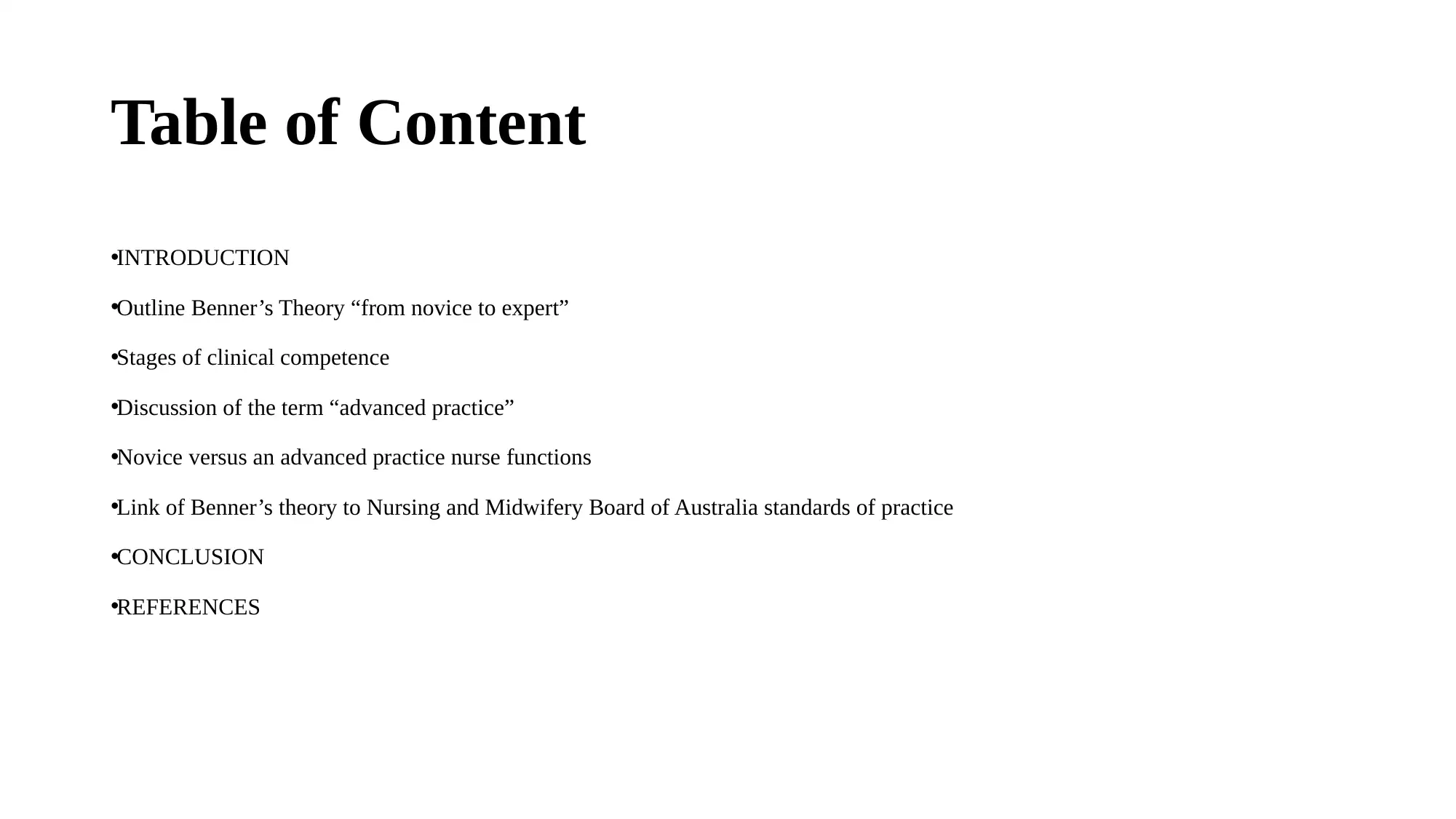
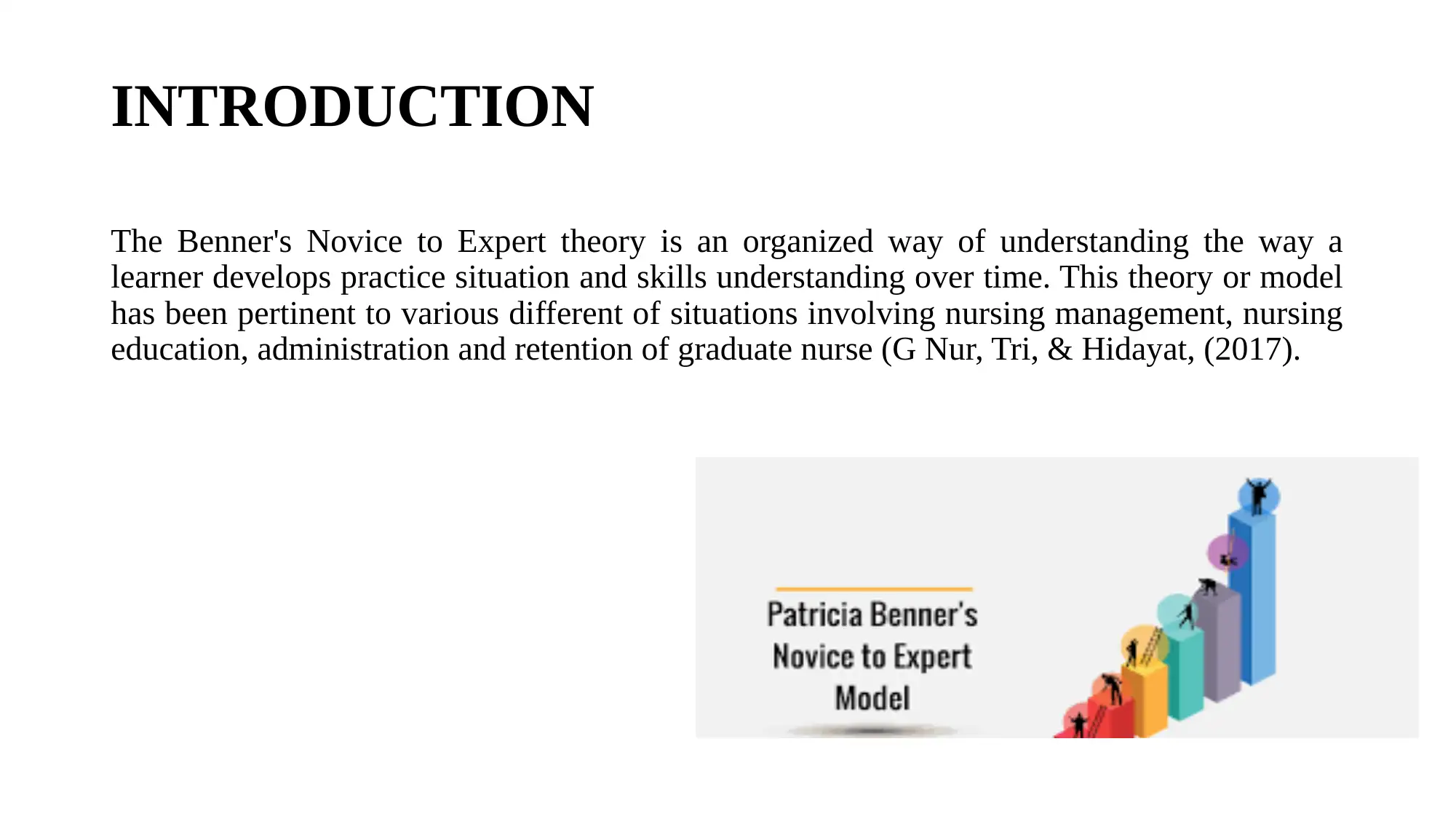

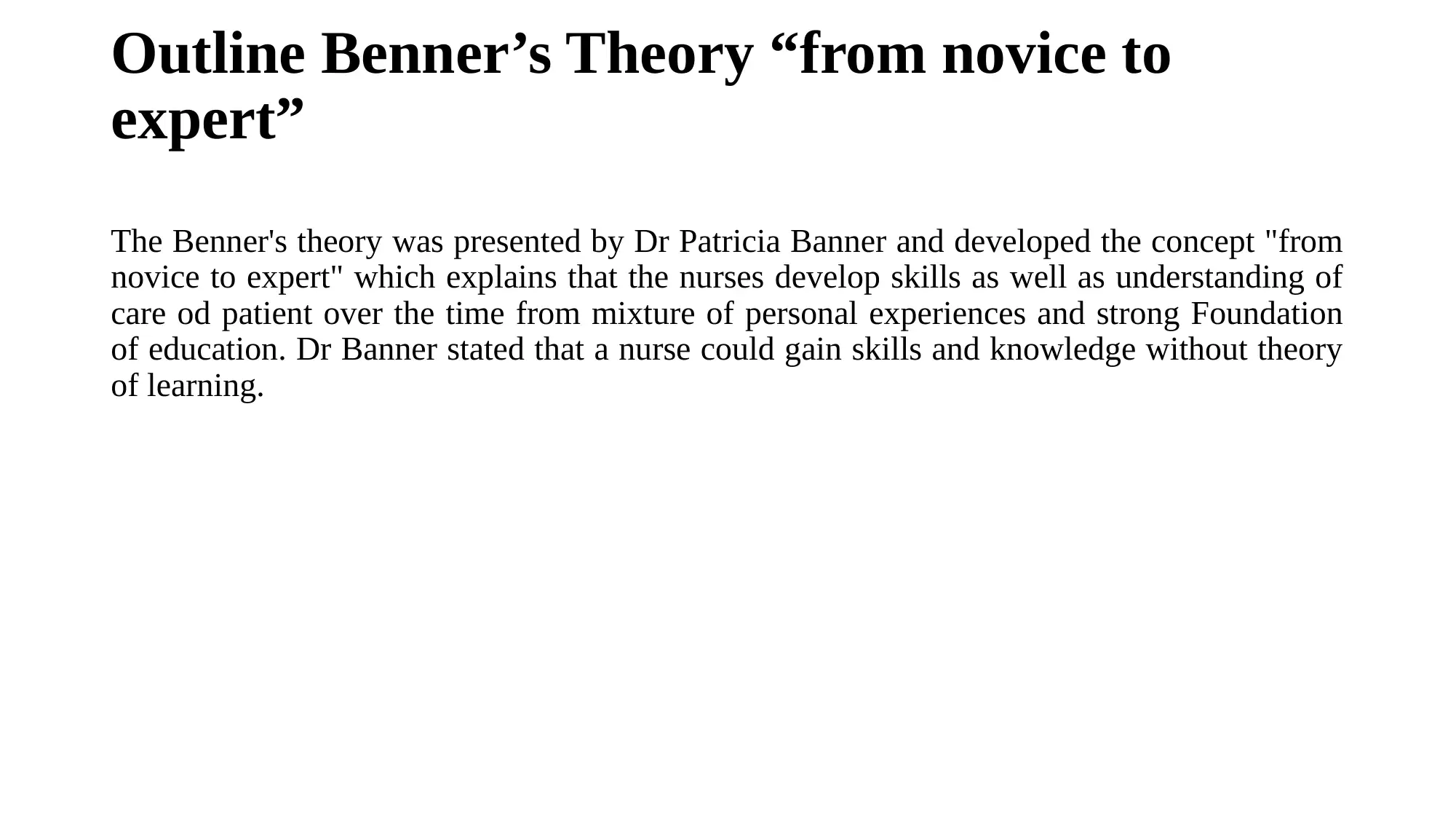
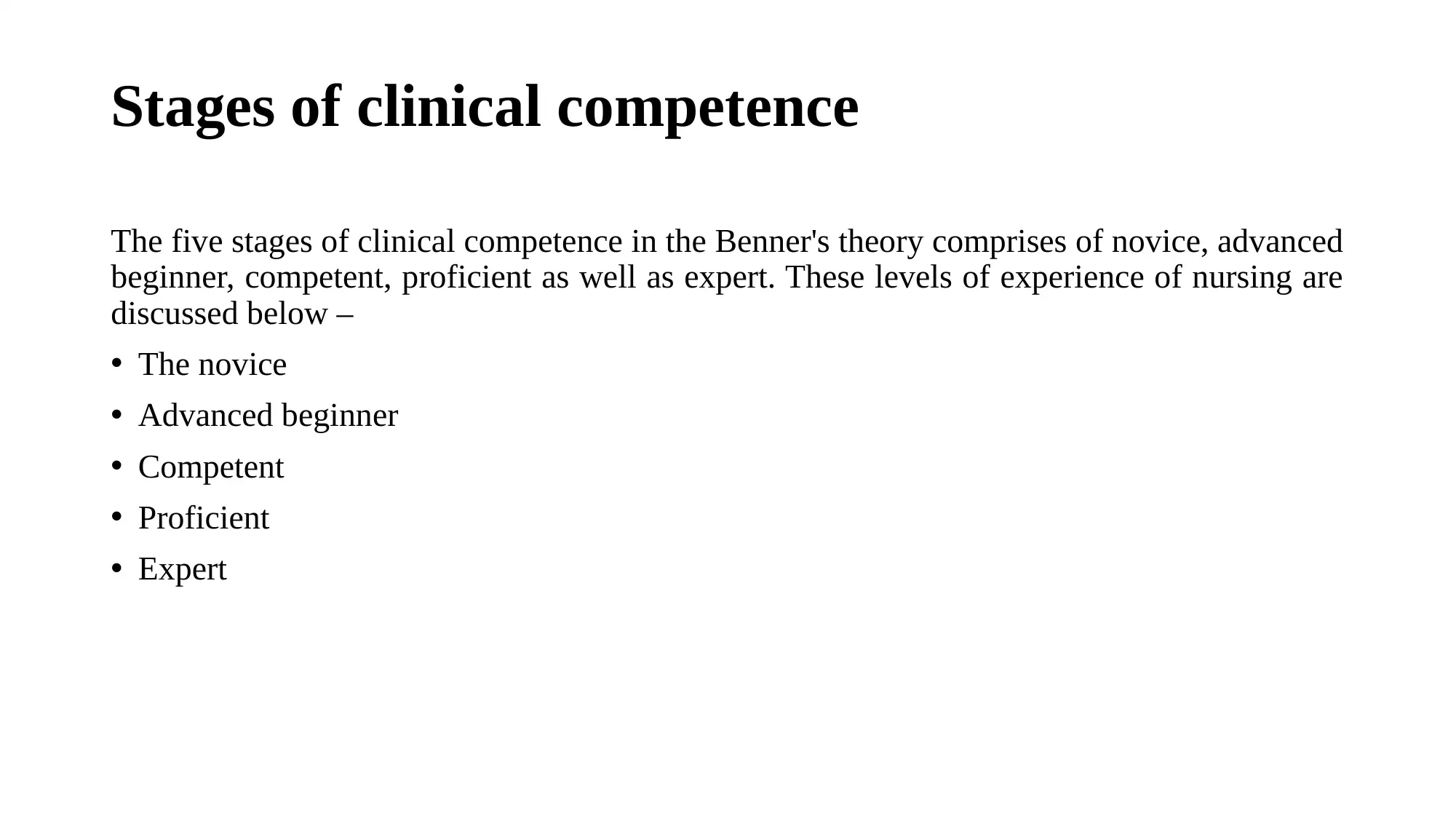
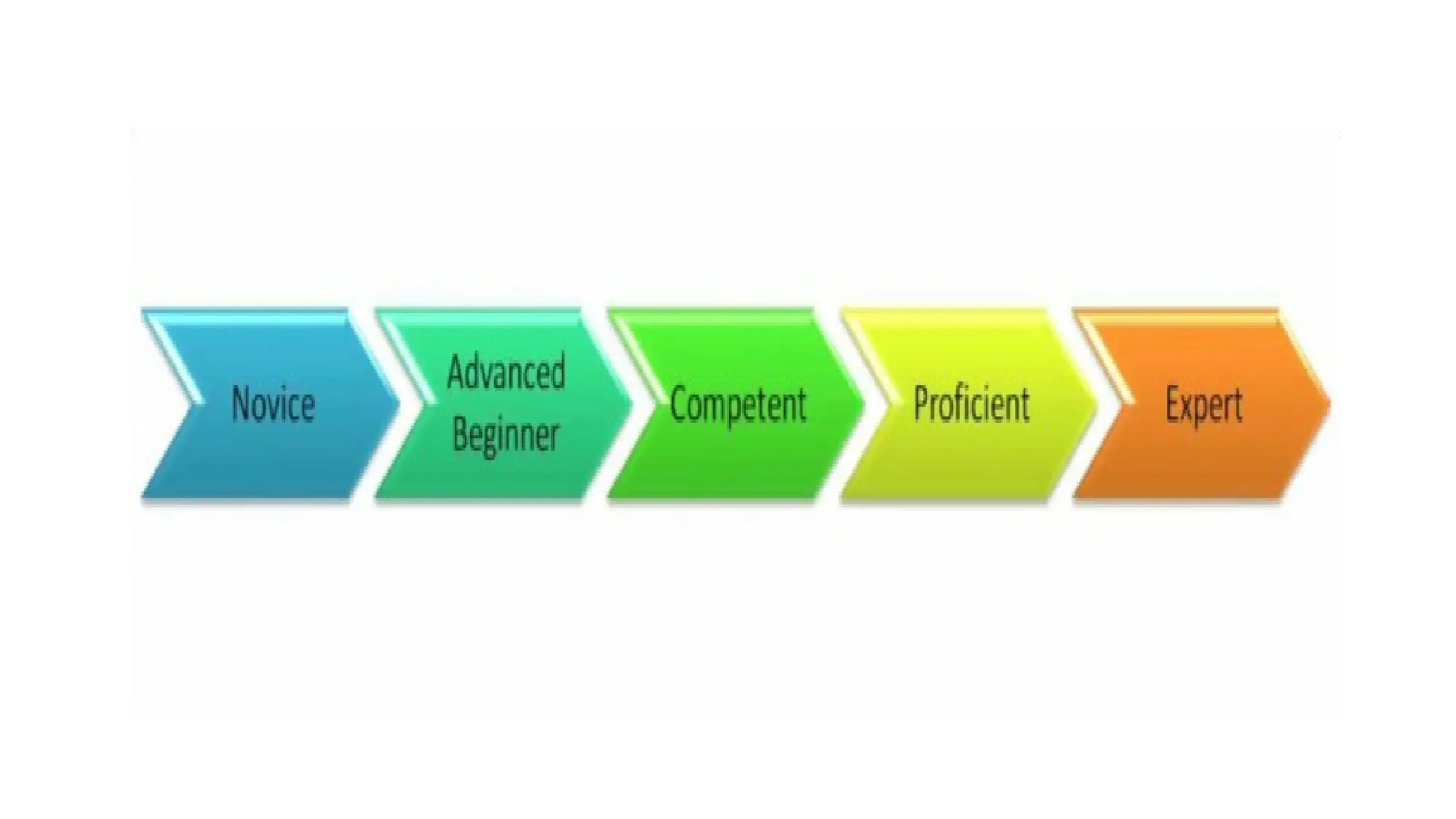
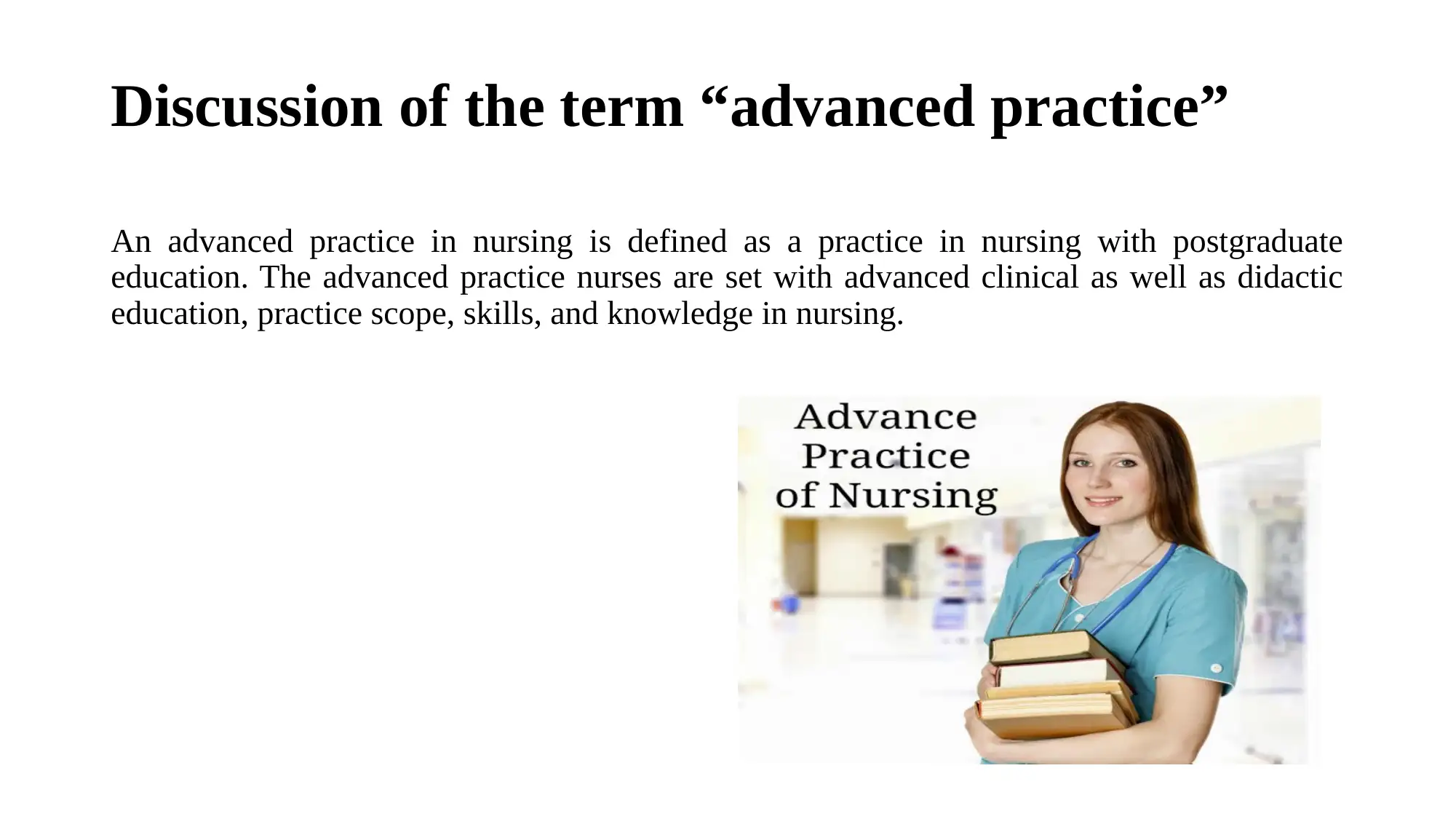
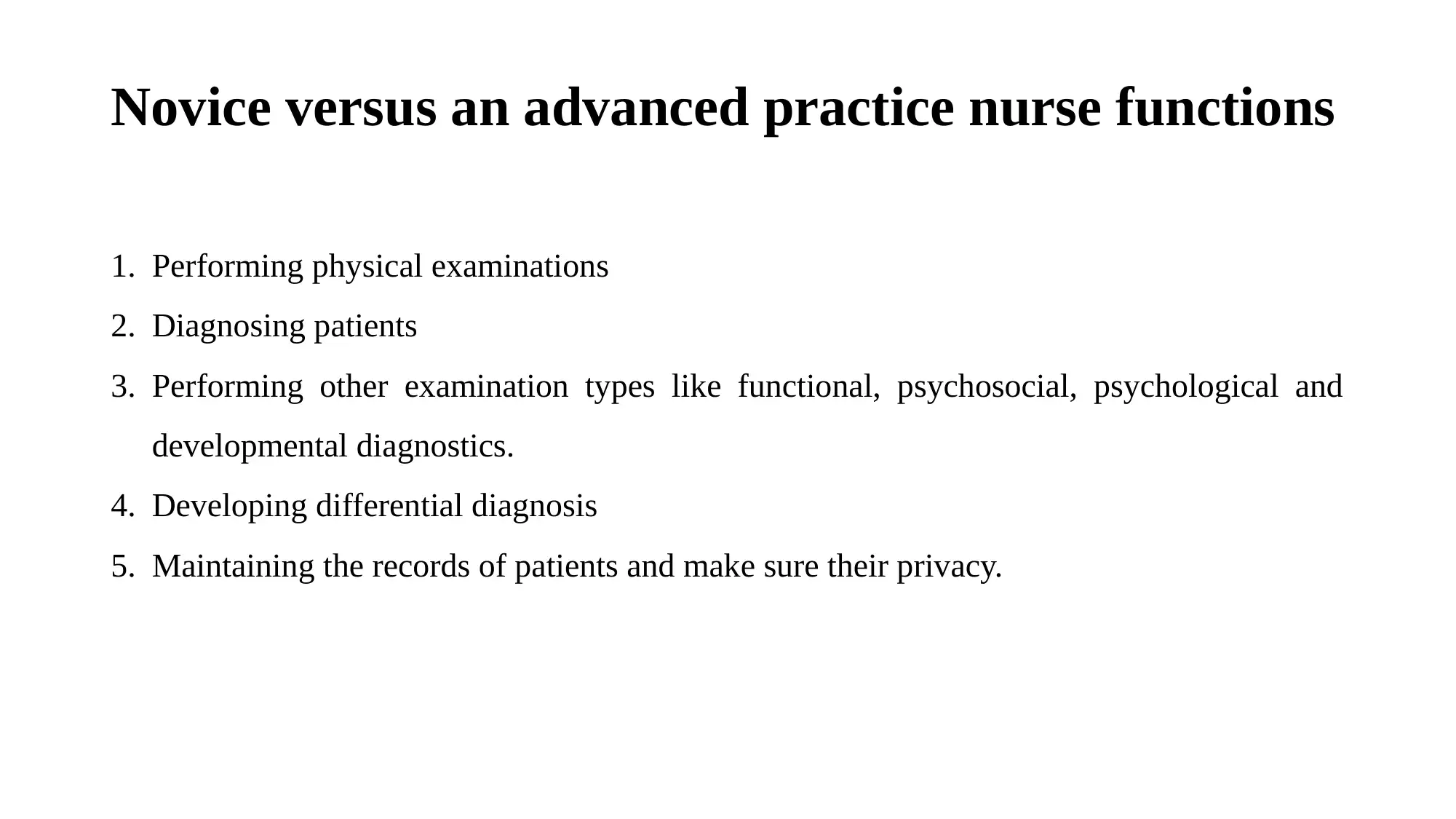
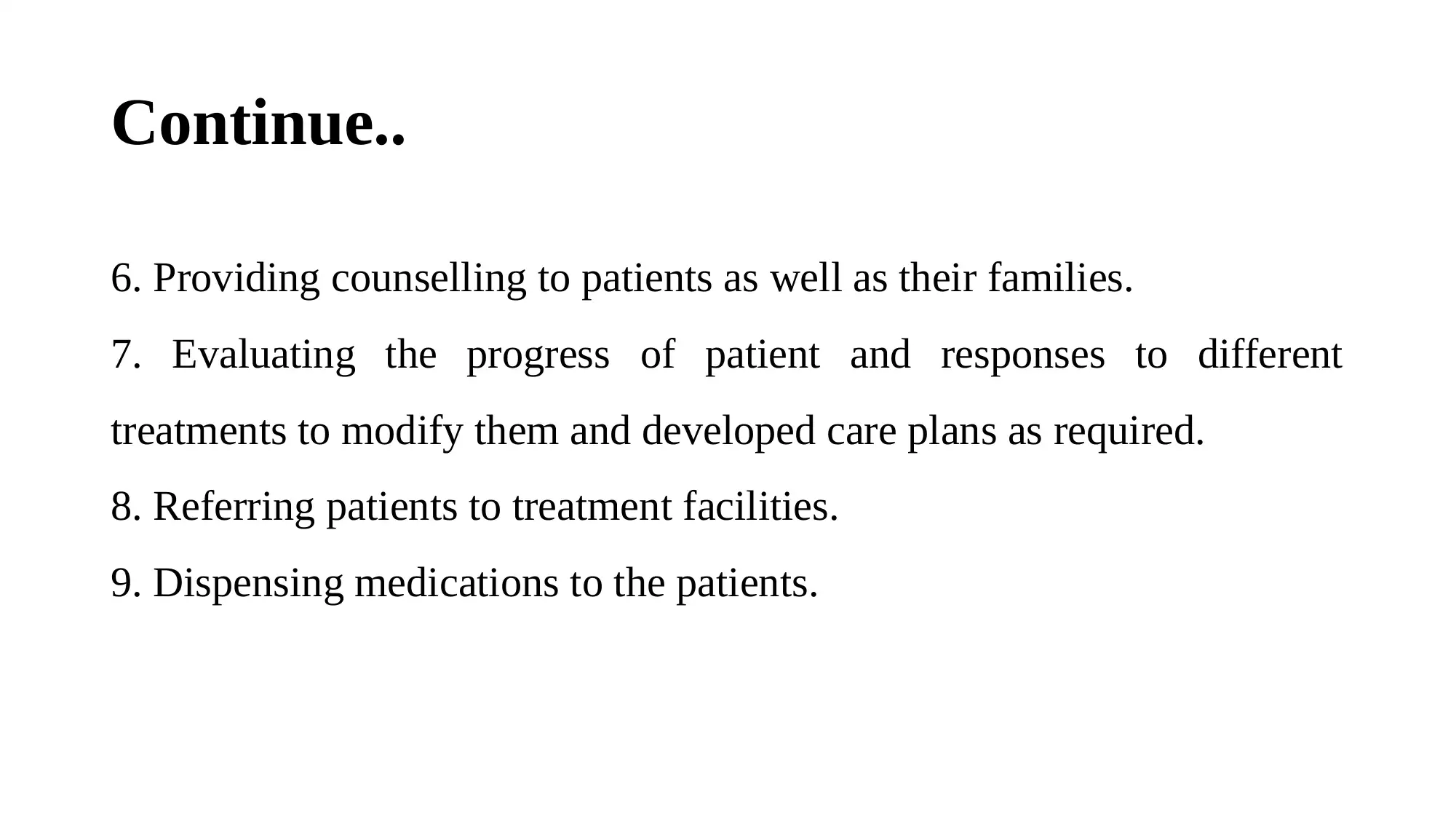
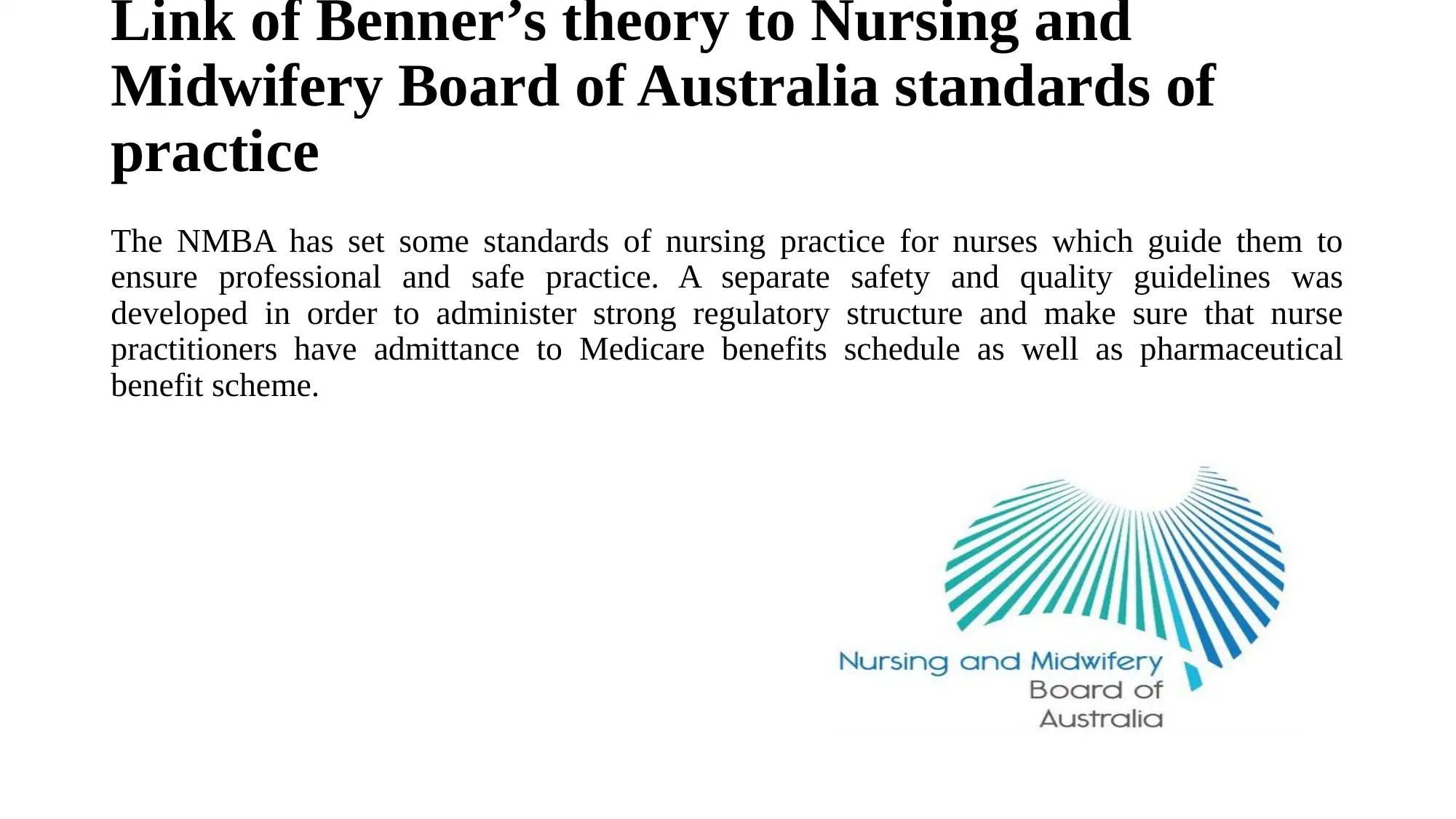
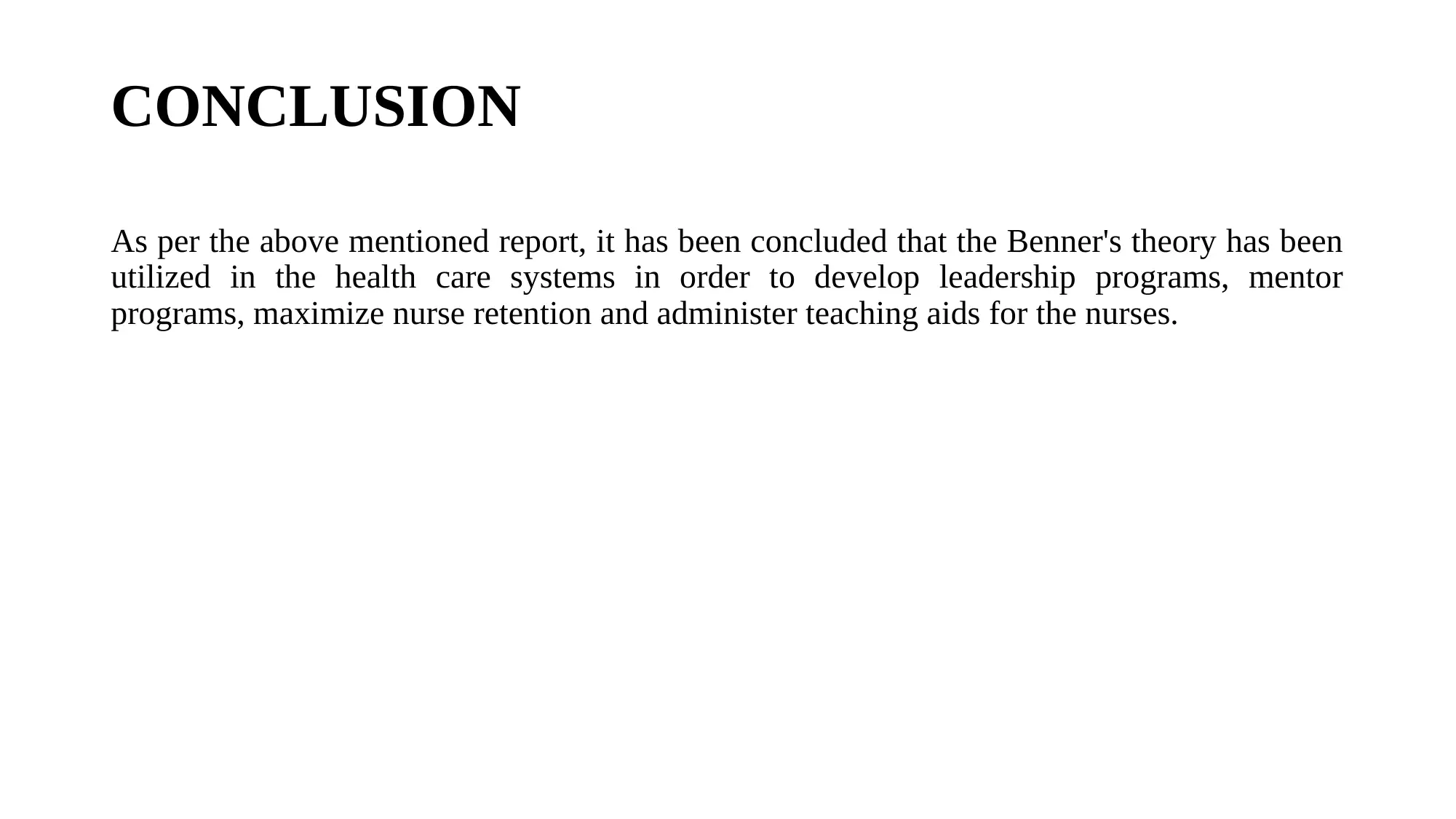
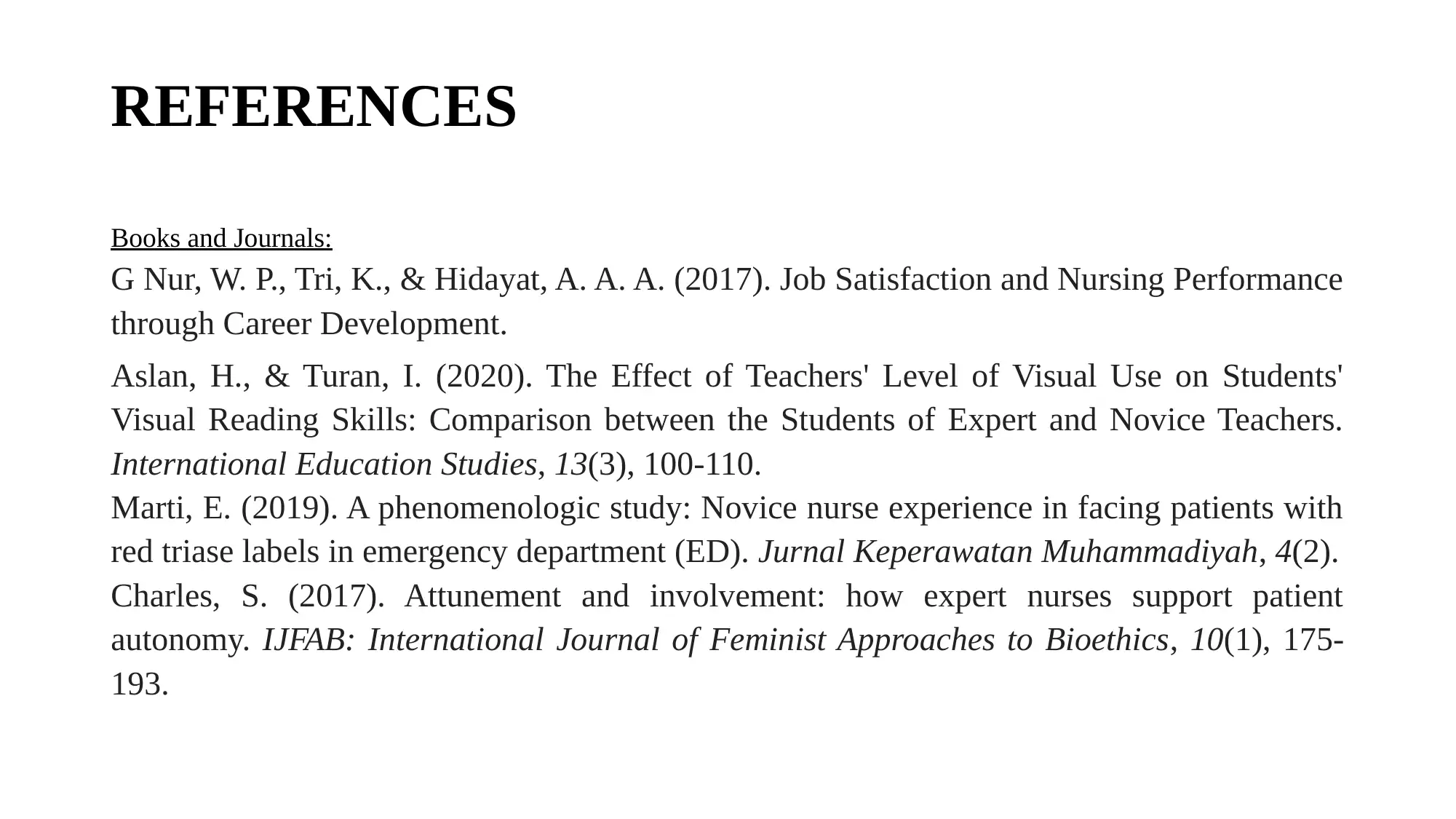






![[object Object]](/_next/static/media/star-bottom.7253800d.svg)